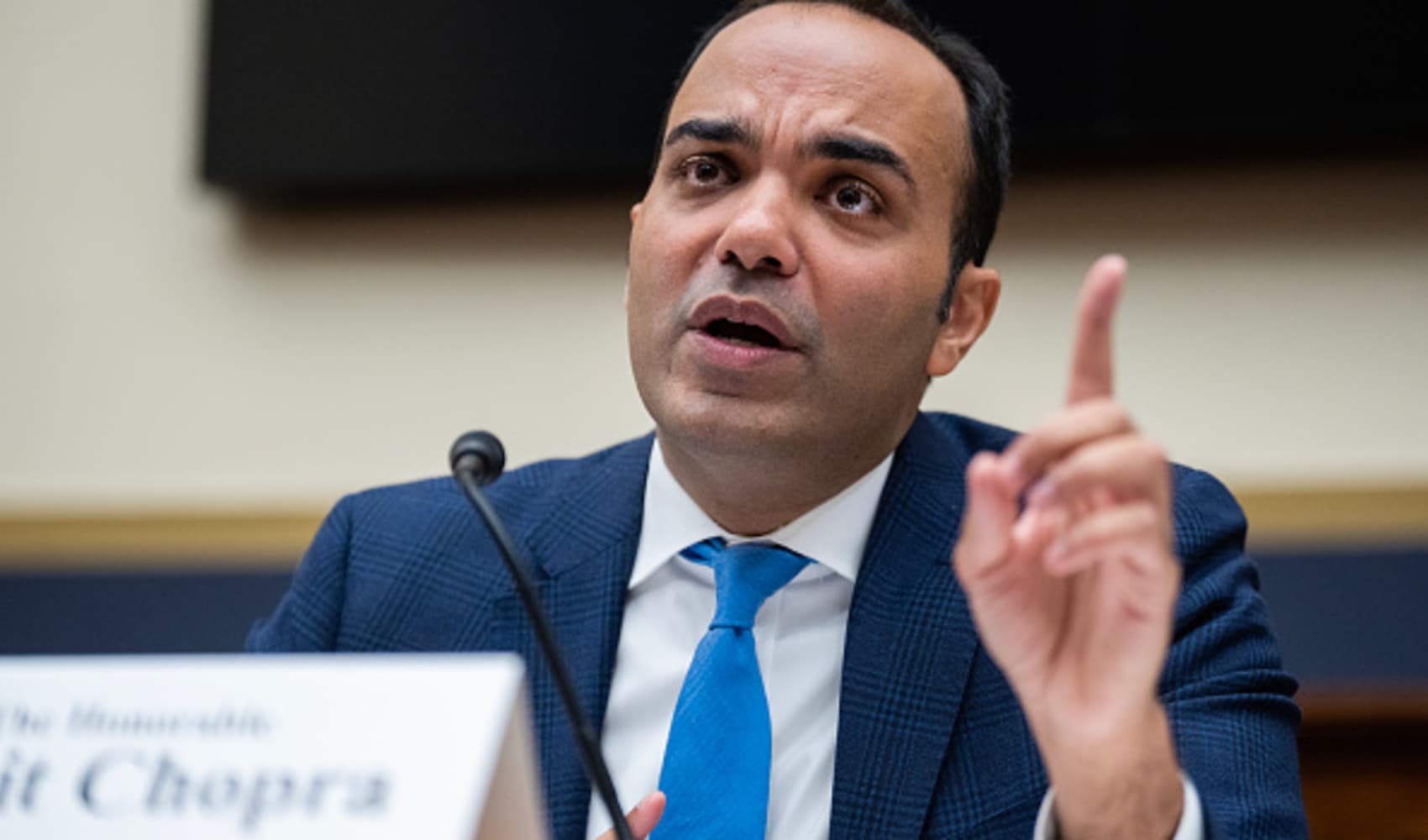
- The Swiss National Bank on Thursday cut its key interest rate by 50 basis points, exceeding expectations of a smaller trim amid an ongoing tussle with depressed inflation and a strong Swiss franc.
- More than 85% of economists polled by Reuters had forecast the bank would implement a 25-basis-point cut.
- The bank also issued a new conditional inflation forecast below that of September, reflecting a "lower-than-expected" print for oil products and food.
The Swiss National Bank on Thursday cut its key interest rate by 50 basis points, exceeding expectations of a smaller trim amid an ongoing tussle with depressed inflation and a strong Swiss franc.
The move takes the bank's main rate to 0.5%. More than 85% of economists polled by Reuters had forecast the bank would implement a smaller, 25-basis-point cut.
Get top local stories in Southern California delivered to you every morning. >Sign up for NBC LA's News Headlines newsletter.
Switzerland became the first major economy to loosen its reins on monetary policy in March, implementing four reductions this year in the battle to tame the national currency's appreciation and declines in consumer prices.
"Underlying inflationary pressure has decreased again this quarter. The SNB's easing of monetary policy today takes this development into account," the bank said Thursday after its first meeting under new Chair Martin Schlegel. "The SNB will continue to monitor the situation closely, and will adjust its monetary policy if necessary to ensure inflation remains within the range consistent with price stability over the medium term."
Speaking to CNBC's Carolin Roth on Thursday, Schlegel attributed the policy decision to lower-than-expected inflation levels and noted that, "With this cut, negative interest rates have become less likely in the future."
Money Report
The bank also issued a new conditional inflation forecast below that of September, reflecting a "lower-than-expected" print for oil products and food and predicting "little change in the medium term."
The new outlook puts average annual inflation at 1.1% for 2024, 0.3% for 2025 and 0.8% for 2026. It assumes the SNB policy rate holds at 0.5% over the entire forecast horizon.
'Nobody likes negative interest rates'
"More cuts are coming, and zero interest rates are on the cards as soon as June. The 0.3% conditional forecast for next year is probably too close to comfort for policymakers, especially given the recent record of revising these down at every single meeting this year," Kyle Chapman, FX markets analyst at Ballinger Group, said in a note following the decision.
Schlegel stressed that Switzerland can withstand a "temporary" period of inflation sitting outside of the SNB's price stability range of 0% to 2%, but said the institution targets consumer price growth within that interval in the medium term.
He did not exclude the possibility of resorting to negative interest rates to manage that objective.
"Negative interest rates are unpopular. Nobody likes negative interest rates. Also the SNB does not like negative interest rates. But we cannot rule out at the current junction to introduce negative interest rates again in the future, if necessary," he said.
This step, he acknowledged, helped tame the attractiveness of the Swiss franc during a seven-year stretch that ended in 2022. Schlegel also left the door open for a potential SNB initiative to deploy its vast balance sheet and intervene in the foreign exchange market to rein in the national currency.
The U.S. dollar had risen by 0.4% against the Swiss franc by 9:17 a.m. London time, while the euro gained 0.57%.
"The franc is likely to come under more appreciative pressure as the ECB outpaces the SNB in cutting rates and the uncertainty around a Trump presidency heightens safe haven flows," Ballinger's Chapman noted.
Schlegel stressed the importance of developments abroad on Swiss finances. When asked about the impact of President-elect Donald Trump's imminent White House return in January, he said, "Switzerland, as a small open economy, for us, free trade and open borders [are] very important to us."
Subdued inflation
Swiss inflation came in at 0.7% year-on-year in November, compared with an annual print of 0.6% in October. Widely viewed as a safe haven amid political turbulence in the euro zone, the franc has largely resisted surrendering ground despite the SNB's rate trims. Its rally has loomed over the outlook for Swiss export opportunities that are already curtailed by tepid demand abroad and weak sales orders.
In October, the business climate index produced by industry association Swissmechanic fell to its weakest level since January 2021, with the body noting expectations of further declines in orders, sales and margins in the fourth quarter.
Fellow industry association Swissmem in November reported a continuing downturn in Switzerland's tech sectors, stressing: "Key indicators do not point to a recovery any time soon. Against such a backdrop, efforts at the political level must be intensified in order to facilitate access to growing markets for the Swiss export economy. In concrete terms, the free trade."
The broader economy recorded "below-average growth" of 0.2% in the third quarter, following 0.4% in the previous three-month stretch, official figures revealed at the end of November, weighed down by the industrial sector.
Market focus will later in the session turn to a meeting of the European Central Bank, which is also widely expected to trim its rates by 25 basis points.






